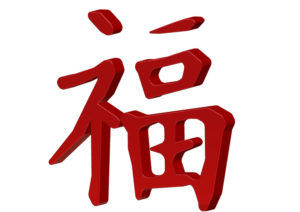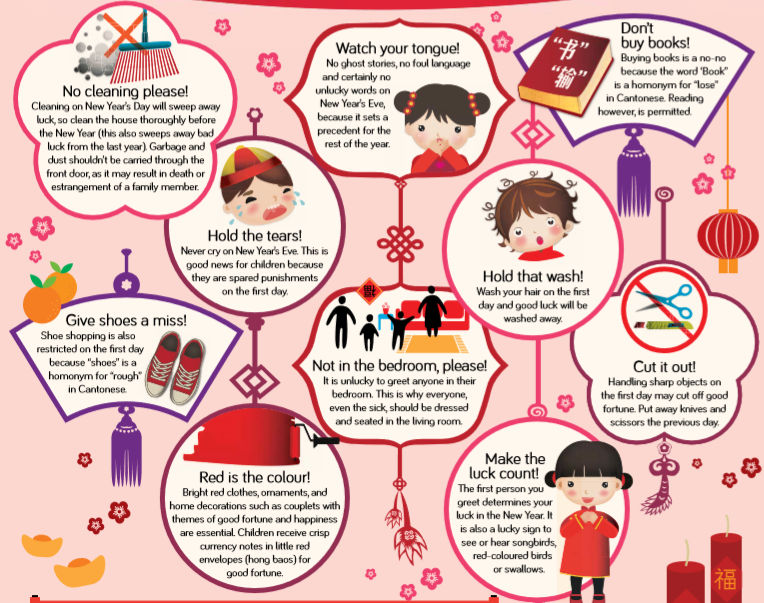Chinese New Years Traditions and Superstitions
Chinese New Year’s Eve, a day where Chinese families gather for their annual reunion dinner, is known as Chúxī, which literally means “remove evening” or “Eve of the Passing Year.” It is the longest and most important festival in China. Other countries and regions with large Chinese populations, such as Hong Kong, Thailand, and the Philippines, also celebrate the Chinese New Year. Chinese New Year, also known as the Spring Festival, is the most important holiday in China. It is a time for families to come together and celebrate the start of the lunar new year.
The Year of the Dragon officially starts on February 10, 2024. Festivities run for 2 weeks, with the holiday ending with the Lantern Festival. Focus on the positive and only use auspicious language. In China, the 15-day celebration kicks off on New Year’s Eve with a family feast called a reunion dinner full of traditional Lunar New Year foods and ends with the Lantern Festival.
So, what are some of the Chinese New Year Traditions and Superstitions?
Many of the Chinese New Years Traditions & Superstitions are similar to what we posted for New Year’s superstitions and New Year’s lucky foods here in the U.S.
Cleaning Superstition
One of the most important traditions during Chinese New Year is the cleaning of the house. This is believed to sweep away any bad luck from the previous year and make way for good luck in the new year. People also often decorate their homes with red lanterns and paper cutouts, as red is considered to be a lucky color in Chinese culture.
The house is cleansed thoroughly to sweep out any bad luck and to make way for good luck in the new year. No cleaning on the first day of the year, however, as you can sweep away the luck of the new year. Using knives, scissors, or anything sharp on New Year’s Day is considered bad luck as you will “cut off” the New Year’s fortune. The yard should also be in order. Don’t wash your hair or clothes on the first day of the year or it is said you will wash away your luck.
Even numbers Superstition
Keep things in pairs – for example, by an even number of oranges. If you give any away, give them in pairs, as odd numbers are believed to bring unhappiness.
Red Envelopes
Another important tradition is the exchange of red envelopes filled with money, known as “hongbao.” These are given to children and unmarried adults as a symbol of good luck and prosperity. It is also common for people to give gifts of food and other items to their friends and family.
Hair Superstition
Do not wash or cut your hair on the first day of the new year… Why? Well, the Chinese character for hair is also the first character in the word for prosper. So the superstition is that washing or cutting hair off is seen as washing your fortune away.
Firecrackers
are set off just after midnight to scare evil spirits. Hardcore believers would like the firecrackers inside their homes with the doors closed, and not open the doors until morning to let in the new year. This was known as Kaicaimen or opening the door of fortune.
One of the most well-known superstitions surrounding Chinese New Year is the belief that loud noises and fireworks will scare away evil spirits. This is why it is common to see fireworks and firecrackers being set off during the celebrations.
Food Traditions
Families come together for a feast. The cuisine for the occasion is chosen carefully, keeping in mind Chinese traditions and beliefs, and often includes whole fish, pork, and duck. This coincides with the theory that on New Years Day you want to eat things that move forward and not those that walk backward, such as lobster or crab to represent moving forward in the new year. The fish is served whole with the head on, symbolizing a good beginning of the new year, and the tail represents the end of the year that just passed. The head of the fish should be served pointing at the family elders as a sign of respect. The scales on fish are also believed by some to symbolize silver and therefore wealth. Also, since many fish swim in schools, they are a sign of abundance. For example, fish is often eaten because the Chinese word for fish sounds similar to the word for “surplus,” symbolizing a wish for abundance in the new year. In the Chinese culture, duck symbolizes fidelity and pork strength, wealth, and abundant blessings.
Rice swells when you cook it and is said to represent luck and wealth. Uncut noodles represent longevity and long life, spring rolls that symbolize wealth due to their shape as gold bars and dumplings which represent ancient Chinese coins due to their round shape, are often included in the meal as well. Dumplings are made in advance and eaten in the last hour of the old year and the first hour of the new year. Some families place a coin inside of one dumpling so the lucky recipient will be sure to have good luck and prosperity in the new year. Mandarin oranges, tangerines and pomelo, a citrus fruit similar to grapefruit found in Southeast Asia.
Candies, cakes, decorations, and many things associated with the New Year and its ceremonies are colored red. You will almost always find Nian Gao, which are sweet rice cakes that can be baked, fried, or steamed. Most homes also have what is called a Tray of Togetherness that has 8 compartments with sweet items such as candied melon, coconut, nuts, candy, and dried fruits. Why eight…the number 8 is considered lucky in China.
Other good ingredients to use for Chinese New Years’ dishes are oranges (signify wealth,) onions (cleverness,) mixed vegetables (family harmony,) egg (fertility,) and pumpkin (prosperity.)
Make amends: On the note of families, the Chinese believe you should not enter the new year angry or hold any grudges, so they will traditionally reconcile differences, particularly within the family. Seems like good advice for all of us to follow.
Out with the old in with the new: Wearing new clothing or getting a new haircut would represent a new start. Red is a color of good luck. (Avoid black or white clothes on the first day of the year as they are thought of as unlucky colors)
Dragon Dances are popular as it’s believed that the loud beats of the drum along with the face of the dragon scare away evil spirits.
Windows and doors are decorated with red symbols that stand for wealth, good fortune, happiness, and health. They also ward off evil.
Encourage good luck to come in by opening up as many windows and doors as possible right after midnight. This will allow good fortune to come into your house.
Children greet their parents with a happy new year the following morning and are given money by their parents in red envelopes, called “hong bao” in Mandarin.
At night, turn on the light switches. This will help you scare away bad spirits that can get in the way of luck.
Get ready to usher in the New Year by taking a bath the night before in pomelo leaves. This will allow you to start the year with a clean slate.
Are there a lot of people that gossip about you? Purchase a pair of slippers and wear them on New Year’s Day so that you can “step on them.” Don’t buy the slippers on New Year’s Day, as it’s considered to be bad luck and can bring about evil in your life.
Decorate your home with plum blossoms which are a symbol of hope & courage. Gifts such as calendars, paintings, or stamps with these flowers have the same meaning.
When it comes to hair, be very careful with how you care for it. You shouldn’t get a haircut for the first lunar month because doing so can put a curse on your maternal uncles. Some also think that washing your hair will wash away your luck. However, because of hygienic reasons, many of the Chinese forego this superstition.
So, what are some easy, lucky foods you can make for the Chinese New Year?
Spring rolls, dumplings, lettuce wraps, fried rice, lo mein, long noodles (mian tiao) and mustard greens are simple to make and you can include several lucky food items.
What else can you do for luck?
- On February 8th and 9th wear red or decorate your home with something red. The Chinese actually don’t wear black for around 15 days surrounding the New Year as black symbolizes death.
- Place a bowl on your kitchen counter with oranges or tangerines – remember to keep them in even numbers. Some households put as many as 12 lucky fruits.
- Flowers are also important for New Years. The Chinese use mainly 2 flowers, plum blossom which symbolizes hope and courage, and water narcissus which represent fortune and good luck. Read more on New Year lucky flowers.
- Offer some fruit up to Zao Jun, the kitchen god. Chinese mythology and folklore believe that just before Chinese New Year, Zao Jun goes to heaven to report to the Jade Emperor. Many take a paper effigy of Zao Jun and place honey around the mouth to sweeten his words to the Jade Emperor, while others say it is to keep his lips stuck together. After this, the effigy will be burnt and replaced by a new one on New Year’s Day.

Place your Fu. Fu (pictured to the left,) is the symbol for fortune or good luck in China. You will see it painted on art, wind chimes, pots, envelopes and many other things. For New Years, it is customary to hang the Fu symbol on the front door or sometimes even their entrance gate.
In addition to these traditions and superstitions, there are also many other customs and activities that take place during the Chinese New Year. The Spring Festival Gala, a television show that features performances of traditional music and dance, is watched by millions of people. The lantern festival, which takes place on the 15th day of the new year, is another highlight of the celebrations.
Overall, the Chinese New Year is a time for families to come together and celebrate the start of the lunar new year. The traditions and superstitions surrounding the holiday are an important part of Chinese culture and are celebrated by millions of people around the world.
Other posts that may interest you:
New Year’s Lucky Foods
Lucky Food Recipes for New Years
What not to Eat on New Year’s Day
New Years Lucky Colors
New Years Lucky Soups
Chinese New Year is a time when age-old superstitions are observed by households as festive customs & traditions.

If you are interested in superstitions, we have plenty of blog posts with fascinating superstitions from the Super Bowl, holidays, Friday the 13th, and more.
Chinese New Years Superstitions & Traditions
Strange Superstitions Around the World
Friday the 13th Bad Luck Superstitions
St. Patrick’s Day Superstitions
Super Bowl Traditions & Superstitions
Christmas Superstitions
Coin Superstitions Around the World
Eye Twitching Superstitions
Evil Eye Symbol Meaning
The post Chinese New Years Traditions and Superstitions appeared first on Top Travel Blog for Travel News, featuring Cruise Ship News..
Source: https://blog.atlastravelweb.com/special-interests/astrology/chinese-new-year-superstitions-and-traditions/
Anyone can join.
Anyone can contribute.
Anyone can become informed about their world.
"United We Stand" Click Here To Create Your Personal Citizen Journalist Account Today, Be Sure To Invite Your Friends.
Please Help Support BeforeitsNews by trying our Natural Health Products below!
Order by Phone at 888-809-8385 or online at https://mitocopper.com M - F 9am to 5pm EST
Order by Phone at 866-388-7003 or online at https://www.herbanomic.com M - F 9am to 5pm EST
Order by Phone at 866-388-7003 or online at https://www.herbanomics.com M - F 9am to 5pm EST
Humic & Fulvic Trace Minerals Complex - Nature's most important supplement! Vivid Dreams again!
HNEX HydroNano EXtracellular Water - Improve immune system health and reduce inflammation.
Ultimate Clinical Potency Curcumin - Natural pain relief, reduce inflammation and so much more.
MitoCopper - Bioavailable Copper destroys pathogens and gives you more energy. (See Blood Video)
Oxy Powder - Natural Colon Cleanser! Cleans out toxic buildup with oxygen!
Nascent Iodine - Promotes detoxification, mental focus and thyroid health.
Smart Meter Cover - Reduces Smart Meter radiation by 96%! (See Video).





